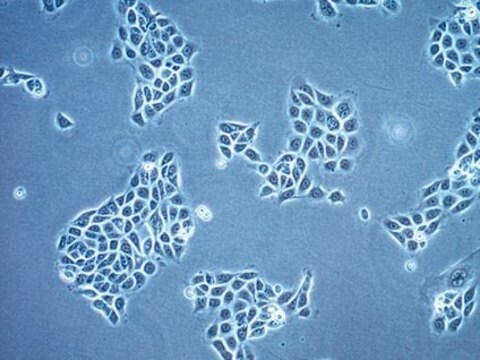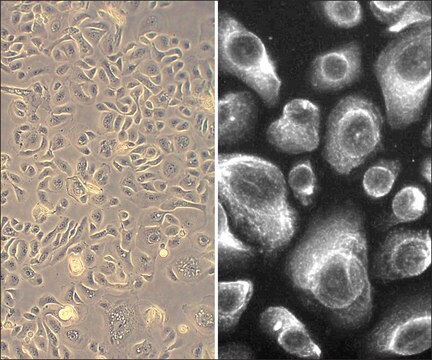C-12620
Human Nasal Epithelial Cells (HNEpC)
500,000 cryopreserved cells
Synonyme(s) :
HNEpC cells
About This Item
Produits recommandés
Source biologique
human nose (nasal mucosa)
Conditionnement
pkg of 500,000 cells
Morphologie
(epithelial)
Technique(s)
cell culture | mammalian: suitable
Conditions d'expédition
dry ice
Température de stockage
−196°C
Description générale
Origine de la lignée cellulaire
Application
Qualité
Avertissement
Procédure de repiquage
Autres remarques
Produits recommandés
Clause de non-responsabilité
Code de la classe de stockage
12 - Non Combustible Liquids
Classe de danger pour l'eau (WGK)
WGK 1
Point d'éclair (°F)
Not applicable
Point d'éclair (°C)
Not applicable
Certificats d'analyse (COA)
Recherchez un Certificats d'analyse (COA) en saisissant le numéro de lot du produit. Les numéros de lot figurent sur l'étiquette du produit après les mots "Lot" ou "Batch".
Déjà en possession de ce produit ?
Retrouvez la documentation relative aux produits que vous avez récemment achetés dans la Bibliothèque de documents.
Articles
Primary human airway epithelial cells and serum-free growth media are optimized for the in vitro cultivation of epithelial cells from large air passages. Protocols for handling, cell passaging, media, and product use.
Notre équipe de scientifiques dispose d'une expérience dans tous les secteurs de la recherche, notamment en sciences de la vie, science des matériaux, synthèse chimique, chromatographie, analyse et dans de nombreux autres domaines..
Contacter notre Service technique



